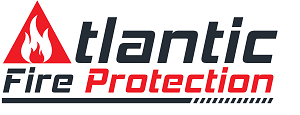A properly functioning kitchen suppression system is crucial for the safety and protection of any commercial kitchen. However, even with regular maintenance and inspections, failures can still occur. In fact, kitchen suppression system failures are more common than you might think.
Investing in fire suppression system maintenance is the key to avoiding these failures. Atlantic Fire Protection is the leading provider of maintenance and servicing for kitchen suppression systems in NJ. Our team of experts is well-equipped to identify and address common factors that can lead to system failure, ensuring the continued safety and operation of your establishment.
Keep reading to learn more about the factors that can cause fire suppression system failure.
Lack of Routine Maintenance
Neglecting routine maintenance is one of the most common reasons for kitchen suppression system failures. Without proper upkeep, critical issues can go unnoticed, compromising the system’s ability to function effectively during a fire.
The main problems caused by lack of maintenance include:
- Clogged or obstructed nozzles: Over time, grease and debris can build up in the suppression system nozzles, preventing proper discharge of extinguishing agents.
- Corrosion of components: Moisture and other environmental factors can lead to rust and corrosion, weakening the system’s structural integrity.
- Worn-out or expired components: Parts such as valves, piping, or extinguishing agents may degrade or lose their effectiveness, impacting system performance.
- Failure to reset or test systems: After activation or over time, systems must be reset and tested to ensure they are functioning as intended in an emergency.
By scheduling regular inspections and addressing these issues promptly, you can improve the reliability of your kitchen suppression system in NJ.
Improper Installation
If a fire suppression system is not installed according to manufacturer guidelines or safety regulations, it may fail to activate correctly during a fire. Incorrect placement of components, such as nozzles or sensors, can leave critical areas of the kitchen unprotected. Also, improperly configured systems may not dispense the correct amount of extinguishing agent needed to control the fire effectively.
Professional installation by certified technicians must ensure the fire suppression system is installed properly. Qualified experts understand the importance of following manufacturer specifications and local safety codes, guaranteeing accurate installation. This reduces the risk of system failure and helps protect your commercial kitchen from potential fire hazards.
Outdated Equipment
An outdated kitchen suppression system may not meet current safety standards, putting your commercial kitchen at greater risk. Over time, regulations and safety codes have evolved to address advancements in technology and emerging fire risks. Older systems often fail to comply with these updated standards, leaving them less reliable during emergencies.
Another concern with outdated systems is using obsolete or less effective suppression technology. For example, older chemical agents may not be capable of extinguishing fires fueled by modern, high-efficiency cooking oils. Upgrading to a newer system ensures compliance with current codes and improved reliability and effectiveness in protecting your kitchen from fire hazards.
We Can Service Your Kitchen Suppression System in NJ
At Atlantic Fire Protection, we understand the importance of a properly functioning kitchen suppression system for the safety and success of your business. Our team is equipped with the expertise and resources to provide top-notch maintenance and servicing for your system in NJ.

